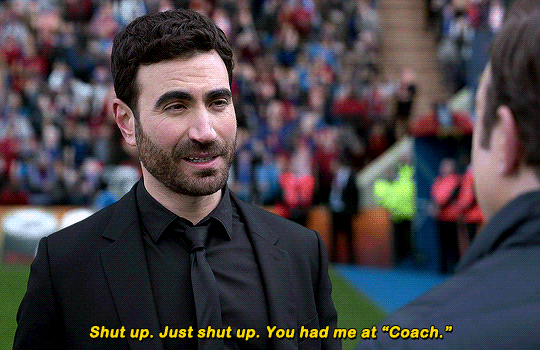“Are You Ready for Some Zombies?”
Original Airdate: February 26, 2018
Hi! My name is Chloe, and I will be doing reviews for iZombie this season.
When we last saw our beloved crime-solving Seattleites, their world had just been flipped on its head... again. Zombie Discovery Day was threatening to expose and endanger many of Seattle’s undead, including our own resident medical examiner, Liv Moore. Additionally, a dangerous virus had been unleashed on Seattle that would kill tens of thousands if no action was taken to stop it.
All this comes to a head in the finale (with seemingly no solution) when a surprising eleventh hour decision is made to rectify the mounting problems. The Fillmore Graves Corporation decides to turn at least half of Seattle into zombies, all while getting to control the situation and the narrative. It is a decidedly risky move for the narrative because it alters the original premise of the show immensely. It is a move so bold that, as a creator, you would have to hope your audience is willing to follow along with the aftermath of your creative changes.
(Fortunately for the creators of this show, I am.)
It also set up season four to be yet another creatively ambitious season, and as an audience member, you have to hope that it can live up to your expectations. Now that we are one episode into the new season, I can say that I am cautiously optimistic that my viewing expectations will be met.
When we return to the world of iZombie, three months have passed and a lot has changed. The zombie soldiers from the Fillmore Graves Corporation have turned Seattle into a zombie-run police state. Or as Blaine so aptly puts it, “We put up a wall and 72 hours later, we are living in Baghdad.” It’s jarring to see how quickly Chase Graves has been able turn Seattle into a place that is systematic, militaristic, and cold. Zombie citizens are given minuscule rations of brain tubes, there is a strict city-wide curfew, and the punishment for disobeying orders is a guillotine that can smash heads (and watermelons) into pulp. Additionally, the remaining humans who do live in Seattle harbor resentment and anger toward the undead, and brand all the homes of the undead with large red Z’s.
It is alarming to watch, because it truly changes how our characters can function now that they live in “New Seattle.” When they aren’t concerned with what Chase Graves and his army might do, they have to contend with the aggressive and violent behavior of some of the humans. It feels like a continuation of some of the issues raised in season three, but now the emotional stakes feel even higher. It will be really interesting to see how important these changes will be to the overall narrative as the season progresses. Will the situation stay how it is, or is a citizen uprising inevitable?
Despite all the new changes that are introduced in the premiere, the episode still does an effective job of re-immersing us in the world of the show without it feeling too jarring. Even though the original premise of the series has been almost entirely dismantled at this point, the show and its core characters still feel familiar enough, for the audience to emotionally connect with them. The episode is decent enough, but feels like it exists to introduce us to the rules and format of “New Seattle” than anything else. The case of the week is not very exciting, but that too feels intentional. The episode is far more interested in commenting on how non-zombies who are left in Seattle are struggling to coexist with what is now the majority population. It will be interesting to see how zombie vs. human aggression will continue to play out, and how that will impact how Clive and Liv solve cases.
Additionally, now that Seattle is predominately filled with zombies, I imagine we will be seeing a lot more zombie-on-zombie crime committed, but it will be even more interesting to see how it impacts Liv. She used to be a lot more useful in solving crimes when she was one of the only zombies living in Seattle. Her ability to have visions made her an invaluable part of the police force, but now that the Fillmore Graves soldiers are in charge of enforcing laws and punishment in the city, how will that impact Liv’s and Clive’s usefulness in solving crime? The first case of the season is ultimately unmemorable, but maybe that is a good thing because it gives us more time to explore the other narrative threads in the episode.
Elsewhere in the episode, we get to see how the changes in “New Seattle” are impacting the rest of our core characters. While I am not completely sure what they are trying to do with Ravi this season, I did appreciate getting to see how he acts during his “time of the month.” He has always provided witty banter with Liv, but was particularly endearing and funny whilst on “nudist brain.” Whether he will be able to finally procure a zombie vaccine that works remains to be seen, but in the meantime I will enjoy seeing this new version of Ravi.
While I am not always too pleased with Major as a character (I think that he is largely selfish and myopic) I like that he is returning to his roots as a youth counselor. His commitment to helping at-risk kids is one of the only things that has ever given Major any real integrity. While I have concerns about him recruiting homeless zombie teens into Chase Grave’s army, I am hoping that he will decide to do more than just insure that they have enough food to eat, and that he will be willing to make some sacrifices if it means that these kids will benefit. It definitely opens the season up for an interesting Major Lilywhite storyline, and as much as I dislike him as a character, I would welcome the change.
This episode also gives us the return of “evil” Blaine. He has been characterized as the central antagonist since the beginning of the series, and David Anders plays manipulative and ruthless so well, so I appreciate seeing this side of his personality again. Blaine’s storyline felt largely sidelined during season three in favor of both the Fillmore Graves and “Fringe Group Zombie Haters” storylines. Just because a new oppressive force comes into the picture doesn’t mean that the other ones have to disappear, and that is what it felt like they were doing last season with Blaine. Blaine’s whole “memory loss” charade made him appear weak and quite frankly less appealing as a character. I am not interested in a reformed Blaine, because I think that his general lack of a moral compass works well in parallel to Clive and Ravi’s characterization. While I understand that it is harder to find room in the narrative for a character that has very few redeeming qualities, I still think that Blaine has room to evolve within the new framework of the show.
While the episode does a lot for most of our characters, it continues to neglect other ones. Peyton’s storylines always feel like an afterthought, and I no longer appreciate when she is on screen. She is underdeveloped and Aly Michalka is criminally underutilized in the role. Unless they can find a way to reintegrate her into the central storyline, I unfortunately don’t see the usefulness in having her around anymore.
Additionally, while it seems like a petty gripe, I have never appreciated Dale Bozzio as a character. She is played in an over-the-top manner which only serves to emphasize her condescending nature. While I am interested to see how being a zombie impacts her relationship with Clive, ultimately I think that he could do better than her. I am far more interested in seeing how Clive’s and Liv’s working relationship and friendship continue to progress now that so much has changed in their environment.
As has been reported on other sites, and then emphasized in the new opening credits, Blaine’s father is now a main character. The credits dub him as “The Prophet,” and his actions in the premiere seem to indicate that he now has a religious zeal. My question is: how does that fit into the current narrative of season four? While it is too early to adequately comment on this new characterization, so far it is leaving me frustrated and confused. I never valued Blaine’s father as a character to begin with, and unless his role as “the prophet” amounts to something earth-shattering, I doubt I will like him this season either.
Additionally, I think it’s important to comment on Liv’s behavior this episode, and largely during last season as well. During this episode, she was rude and unprofessional both at work and with her friends. While some of those changes are the result of the brain she ate, I no longer accept that as an excuse for her bad behavior. While eating the brains of murder victims has always given Liv vivid visions and personality changes, a shift has taken place in how the show comments on those changes. During the first two seasons, we had a better understanding of how eating the brains of the dead impacted her psychologically. She was restless and haunted by what she saw during visions or what a brain “made her do.” Now, she doesn’t seem to care or take responsibility for how those changes impact her or her friends. We saw this presented at the end of last season, when Liv decides to sleep with Chase Graves despite having just discussed being exclusive with her boyfriend, Justin. While she argues that the brain “made her do it” it is clear to both Justin, and the audience, that Liv is lying. We know that even when a brain has left lingering changes to Liv’s own personality it has never completely corrupted her ability to be autonomous. Her decisions have always been her own, so to now claim otherwise is very manipulative.
While Liv used to exist on the morally “good” side of things, especially in contrast to Blaine, I am not sure that characterization quite fits her anymore. She still has qualities that make her recognizable (and she is not an entirely “bad” person now) but she has also changed so much throughout the series that she is so clearly not the person she was before. For right or wrong, Liv has changed and I would like to see her held accountable for how those changes impact Clive, Ravi, Peyton, and Major. Especially now that the formula of the show has changed, it will be even more important to see how Liv responds to the changes in her environment. Will she be willing to confront some of these changes in order to create a better world for herself and her friends, or will she put that responsibility on someone else? Hopefully season four will explore this.
Ultimately “Are You Ready for Some Zombies?” does a good job of establishing a trajectory for the season, while still leaving us with a lot of questions about what we might be building toward. It isn’t a perfect episode, but it still gives us enough familiarity amidst all the change to still feel like it is safe to emotionally invest in the season. Now that we know what “New Seattle” looks like narratively and tonally, let’s see where this updated version of iZombie takes us. I will be back next week with my review of episode two, “Blue Bloody”!
















